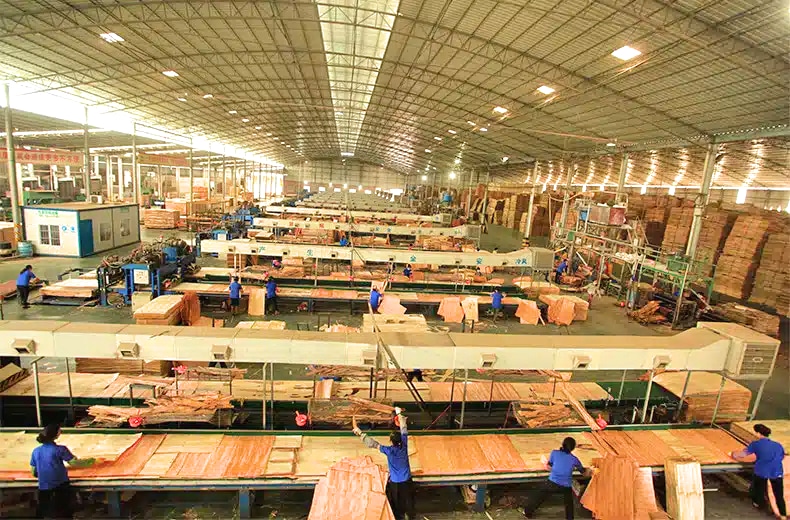A Miami husband and wife have been sentenced to 57 months in prison by the US Attorney’s Office, Southern District of Florida, for illegally importing and selling up to US $65 million of plywood manufactured in China using Russian timber, violating the Lacey Act and customs laws.
Their employee was also sentenced.
This is considered one of the harshest judgments in the history of the Act, which was strengthened in 2008 when the Food Conservation and Energy Act expanded its protection to a broader range of plants and plant products.
At the time, illegal logging was championed by Senator Ron Wyden, some arguing that the motivation for the Act was to protect US lumber jobs and support supply-chain objections to the burden of reporting.
In addition to their prison sentences, the couple was ordered to pay, jointly and severally, US $42,417,318 in forfeitures and US $1,630,324 in government storage costs. They were also ordered to serve three years of supervised release after imprisonment.
“The enforcement of customs laws serves an integral part of US foreign and trade policy,” US Attorney Markenzy Lapointe for the Southern District of Florida said.
“In this case, the defendants undermined US policy by evading legally mandated customs duties on plywood manufactured in China using Russian timber. Moreover, by doing so, the defendants covered up their criminal scheme to violate federal environmental law while also unjustly enriching themselves. This case shows the importance of prosecuting customs and environmental offences.”
Mr Lapointe said illegal timber trafficking had severe environmental effects. Also, accurate plant import declarations protected domestic producers from dumping by foreign countries and detected potential over-harvesting and trade in timber from high-risk sources.

Assistant Attorney General Todd Kim of the Justice Department’s Environment and Natural Resources Division said the case clearly illustrated the ties between natural resource crime and customs laws and resulted from excellent investigative work by customs officers, import specialists and Homeland Security Investigations (HSI).
HSI is committed to pursuing individuals or entities that attempt to defraud the government of millions of dollars, violate US Customs laws and undermine a fair marketplace for businesses.
Special Agent in Charge Anthony Salisbury said these criminal activities only negatively impacted the US economy. “We will continue to work with our federal law enforcement partners to combat this illicit activity,” he said.
According to court findings, the Miami-based couple engaged in a sophisticated scheme to evade antidumping and countervailing duties owed on hardwood plywood products made in China by falsely declaring the species, country of origin or country of harvest of the wood from which the plywood was made.
At times, they caused plywood containers to be shipped from China to Malaysia or Sri Lanka, for example, where the wood was taken out of the original containers and put into a second set of containers to conceal the Chinese origin of the product.
When importing plant products, the Lacey Act requires filing a declaration that contains, among other things, the plant’s scientific name and its country of harvest.

The Lacey Act makes it unlawful to transport or sell a plant product knowing it or the plant it was made from was transported in violation of any plant-related law. Customs laws prohibit false statements in any import declaration without reasonable cause to believe the truth of such a statement.
Regardless of country of export, the timber carried a general duty of 8%, with a few duty-free exceptions, such as if the outer ply was made from Brazilian Parana pine (Araucaria angustifolia).
Antidumping and countervailing duties of more than 200% were applied to hardwood plywood manufactured in China after April 2017.
Before that date, the accused imported plywood containers into the US and almost exclusively declared them hardwood plywood imported from China.
However, after April 2017, they evaded applicable duties by falsely declaring their hardwood plywood imports from China to be either the product of another country or made with a species of wood not subject to duties.
A declaration from July 2018 said plywood in three containers was manufactured in Russia. However, the containers were manufactured and loaded in Qingdao, China, and transported to Port Everglades, Florida, through the Panama Canal without stopping in Russia.
After federal authorities stopped the shipments through Panama, the husband and wife used a different tactic to evade duties by shipping Chinese-produced hardwood plywood to Malaysia and transferring the wood to new containers to be shipped to the US.
This container change was intended to conceal better than the plywood that originated from China.
Meanwhile, the Department of Agriculture, Fisheries and Forestry in Australia has completed its Illegal Logging Prohibition Regulation 2012 Sunsetting Review following consultation with industry and the public.
The review resulted in recommendations to strengthen the department’s regulatory powers.
The Minister for Agriculture, Fisheries and Forestry, Senator Murray Watt, has since agreed to pursue the recommended legislative reforms in the review.
The department is now progressing these reforms that require changes to both the Act and Regulations. This will be considered by the government once substantially drafted.
In March last year, DAFF fined 14 furniture importers more than $186,000 because they didn’t act to minimise the risk of importing illegally harvested timber.
The fines were issued under the Illegal Logging Prohibition Act 2012 and the Illegal Logging Prohibition Regulation 2012.
Head of Compliance and Enforcement at DAFF Peter Timson said Australia had strict requirements for importing timber, and it was essential to hold importers accountable.
“We are enforcing our powers to help combat illegal logging, which has been linked to organised crime, civil unrest, corruption, species extinction and environmental destruction around the world,” Mr Timson said.
“Importers must conduct adequate due diligence assessments,” he said.
“They must understand where they are sourcing their timber from and to limit the risk of it being illegally harvested. The furniture importers didn’t follow the rules, and 14 fines of $13,320 each were issued.”
Timson said the illegal trade could comprise up to 10% of timber products entering Australia, undercutting domestic production, regional businesses and communities.
“It’s important that Australians have confidence that their furniture, housing materials and other timber products come from sustainably and responsibly certified timber,” he said.
Australia’s strict timber importing requirements set a high bar internationally. The federal government works closely with the Asia-Pacific Economic Cooperation, an inter-governmental forum comprising 21 member economies in the region.
“APEC member economies and relevant international organisations combat the trade in illegally logged timber products globally.”
In the meantime, US President Joe Biden, in response to the death of dissident Aleksei Navalny, has issued sanctions that target hundreds of Russian entities and individuals. However, key timber traders say he could go further in areas that are also good for the planet.
Timber represents more than half of all remaining US imports of Russian goods. All the country’s vast forests are state-owned, with some under the control of its military.
Customs data shows the US has imported nearly $2 billion of timber from Russian companies since the war with Ukraine began.
“The US should immediately bar Russian timber, pulp and paper imports, as the EU and UK have already done,” insists Tara Ganesh, leader of the Timber, Sanctions and Northern Forests team at Earthlight. This non-profit organisation uses in-depth investigations to expose environmental and social crime and links to global consumption.
“The new US sanctions have targeted hundreds of entities and individuals and are a sign that Biden’s administration will live up to its word,” Ganesh said.
“Our proposed response, however, would simultaneously teach Putin a clear and painful lesson and help save the planet from climate change at the same time.






